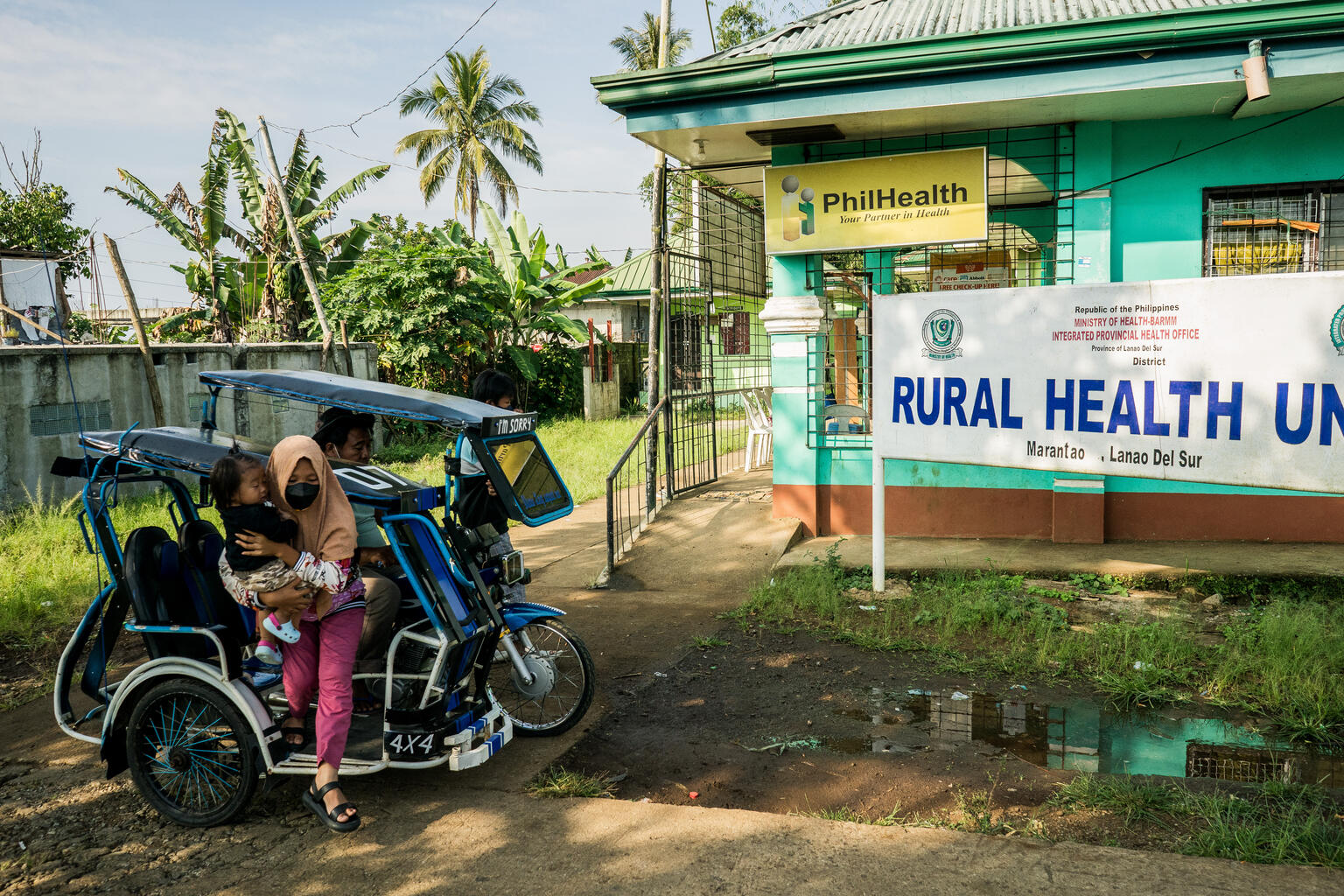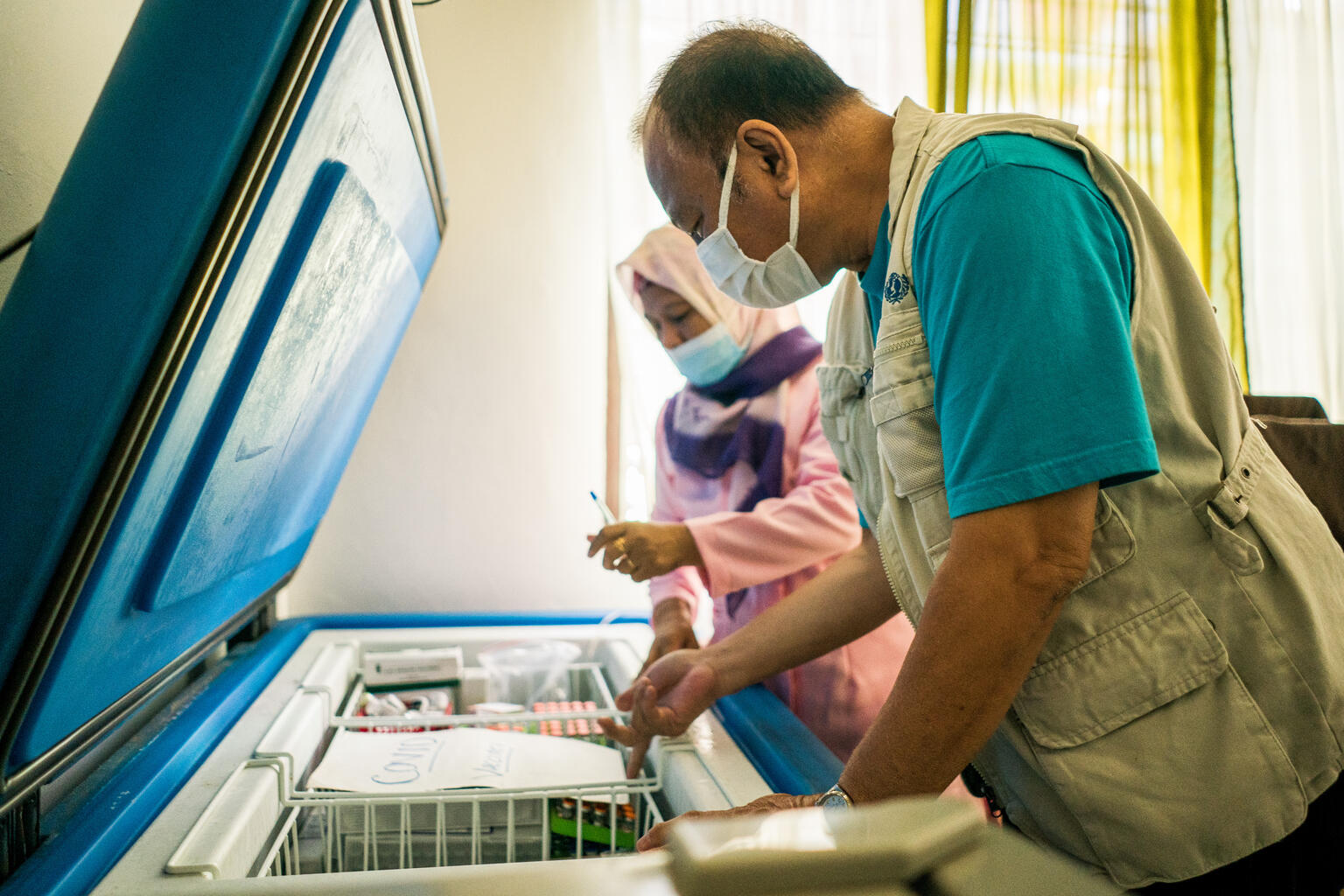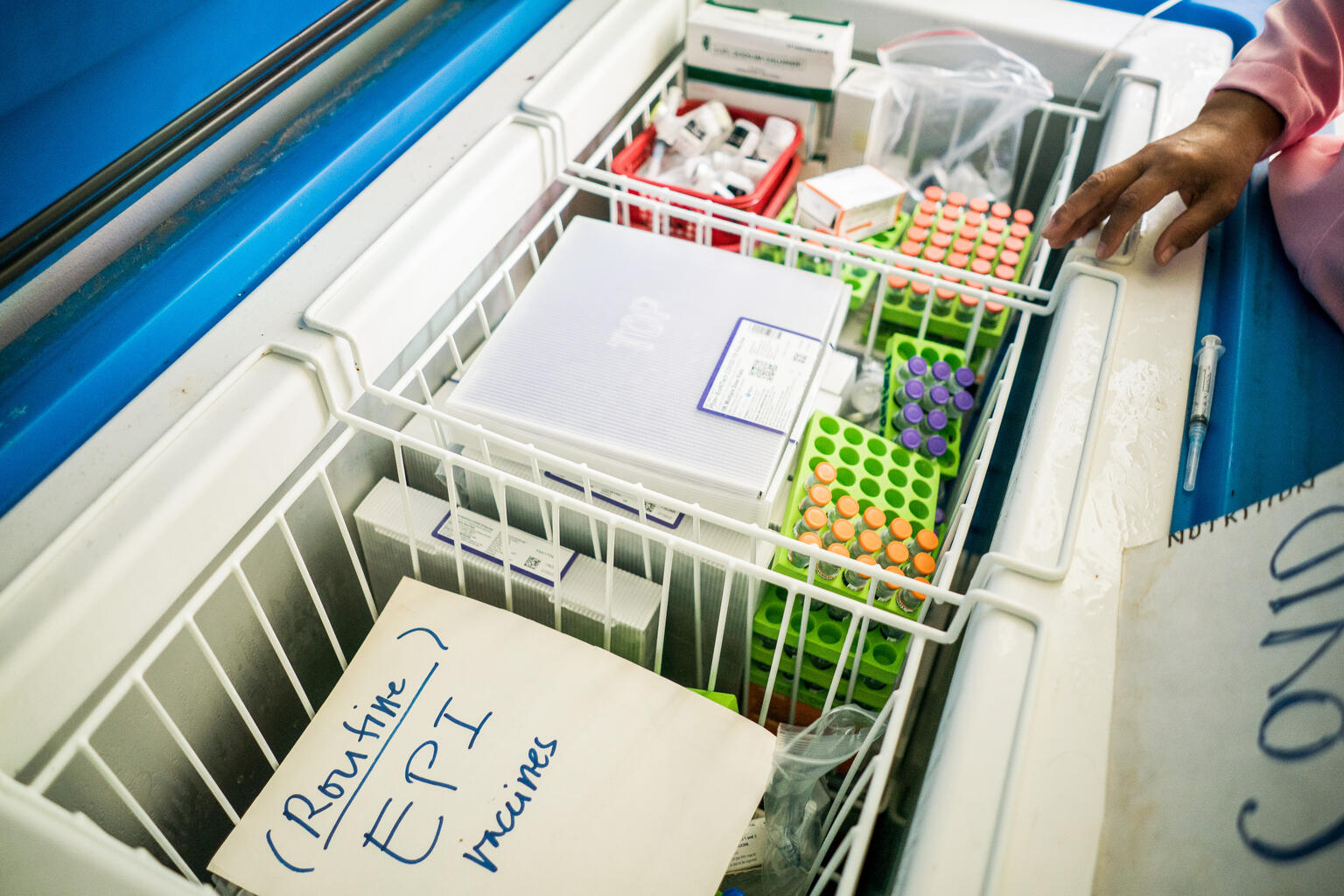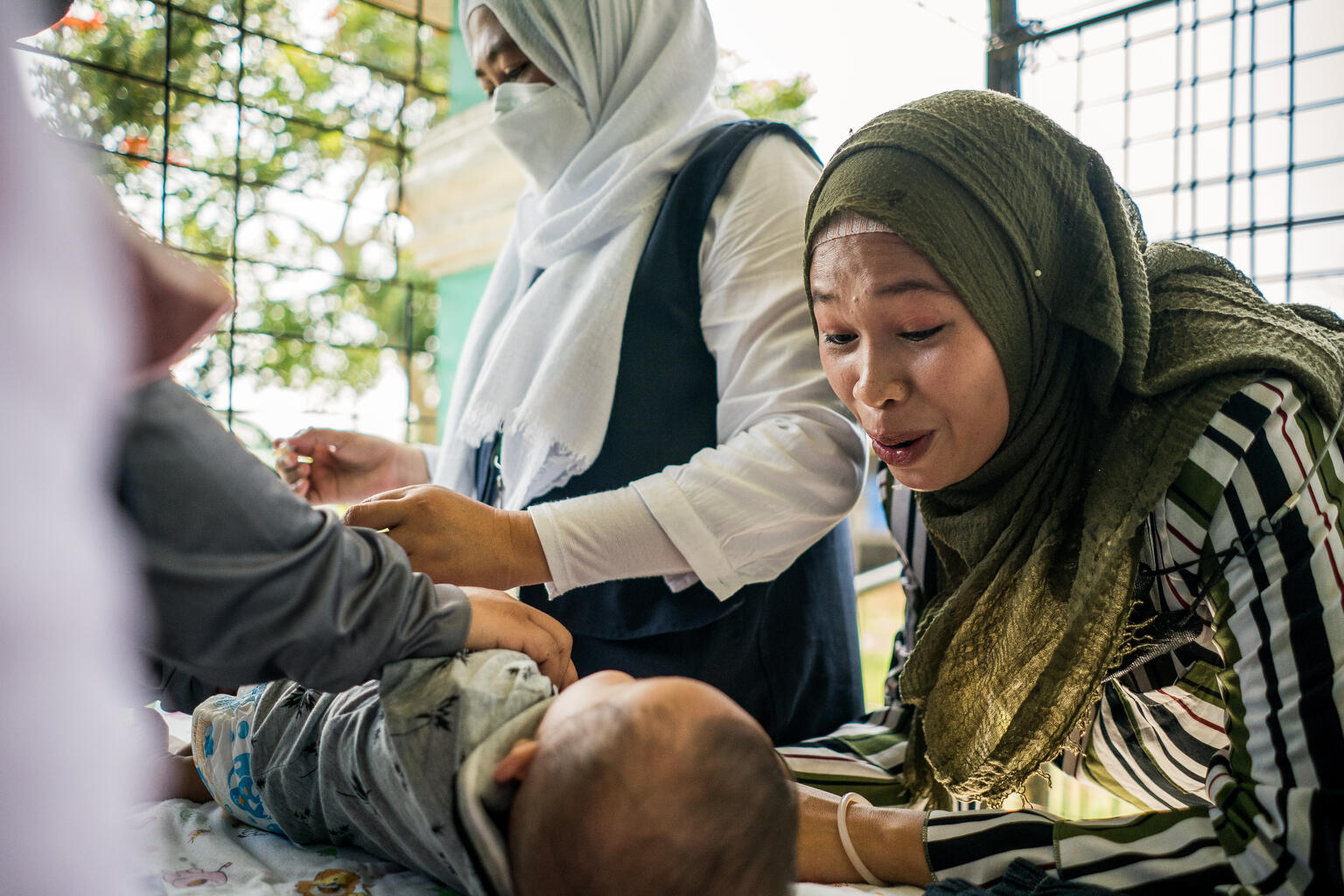Midwife Evelyn Noraida Saro remembers the day when she couldn’t convince Angela, a mother of three, to vaccinate her children against measles.
Between 2018 and 2019, the Philippines faced a measles outbreak due to low measles vaccine coverage in the country, leaving children susceptible to the highly contagious respiratory disease that has led to death and disability for millions of children.
Alongside a team of health professionals, Saro traveled to various communities in the Bangsamoro Autonomous Region in Muslim Mindanao (BARMM) to vaccinate children amid the country’s measles outbreak — which saw reported cases in 2,400 children in 2017, 18,000 in 2018, and over 48,800 in 2019, signifying a 2,000% increase.
“We visited [Angela] three times, but she refused to have her children vaccinated,” Saro recalled, adding that the team explained the potential risks. “One month later she came to our health clinic telling us that one of her children has measles.”
After being hospitalized and receiving treatment, Angela’s three-year-old child survived. She is one of the lucky ones, Saro said. According to the World Health Organization, more than 140,000 people died from measles in 2018, most being children under five. Following this, Angela reached out to Saro’s health team to vaccinate her other children, who had never before received immunizations.
A recent report by UNICEF indicates that between 2019 and 2021, the number of “zero-dose children” (meaning children who have not received any routine immunization) rose from 13 million to 18 million globally. This increase, of more than a third, may be attributed to several factors including a drop in routine immunizations during coronavirus lockdowns.
The Philippines has over 1,047,000 zero-dose children, according to UNICEF. The BARMM region, where Saro works, has the fifth-highest number of zero-dose children in the country — with over 7% of children never having received a vaccine.
 Evelyn Noraida Saro prepares a vaccine inside her office on Sept. 21, 2022 in Marantao, BARMM, Philippines. “Vaccines are your body’s soldiers, your defense against any illness that may come,” says Saro.
Evelyn Noraida Saro prepares a vaccine inside her office on Sept. 21, 2022 in Marantao, BARMM, Philippines. “Vaccines are your body’s soldiers, your defense against any illness that may come,” says Saro.
Saro works in Marantao Municipality Rural Health Unit in Lanao del Sur, a province in BARMM, where she provides mobile medical services to vulnerable communities. Saro, who has been working as a midwife for 12 years, provides counseling on family planning, manages pre- and post-natal care, and handles deliveries.
“I chose midwife as my profession because it's my passion to give health education to the community. In my heart, I’m so happy,” she told Global Citizen, her eyes filling with tears.
Saro travels to up to five communities each day to provide health services and education on topics including sanitation and vaccination, the latter of which Saro said is the “hardest part” of her job.
Vaccination hesitancy is common, she explained, due to an abundance of misinformation and conspiracy theories. With the majority of people living in Lanao del Sur being Muslims, Saro said she often speaks with devout practitioners who oppose vaccinations.
“If someone gets a disease, it is Allah’s will. If Allah’s will is for them to get better, they will,” Saro says she typically hears.
Saro, who considers herself religious, says her spiritual practice helps her when speaking with these individuals as part of community outreach efforts.
“Allah also gave you decision-making skills to decide on and seek the right treatments for illnesses,” she typically explains, making a case for vaccinations to help as a preventative measure.
During vaccination campaigns, health workers like Saro partner with religious leaders such as Imams who use the Quran to explain how vaccination is permissible in Islam.
Saro has also encountered people who believe vaccines are harmful and developed by the US to reduce the Muslim population globally. Since a large portion of the population in Lanao del Sur are farmers and fishermen who aren’t formally educated, Saro said they are susceptible to this misinformation.
Some vaccine hesitancy, however, is due to the controversy with the Dengvaxia dengue vaccine, which launched in the Philippines in 2016. After allegations the vaccine led to the death of several children, charges were filed against the government and executives of Sanofi, the vaccine developer. A study published in 2021 reveals that this national scandal led to “significant damage to vaccine confidence in the country.”
Saro has found that to be true.
“From time to time we really need to explain to them [parents] that Dengvaxia no longer exists [in the Philippines] and what we are giving children now are routine immunizations,” she said.
In Geographically Isolated Disadvantaged Areas (GIDA), where communities are socio-economically marginalized, and where Saro travels for health outreach, she has met numerous parents who let their children — as young as two years old — decide whether they would like to get vaccinated.
“We tell them, ‘Don't ask your children. It’s you who should decide,’” Saro told Global Citizen.
Saro said she is “so very happy” anytime she sees a child complete their routine vaccinations.
She still remembers the first baby she vaccinated in 2010. His mother receives health services in the health center where Saro works.
“I’ve seen him grow up over the years. I’m happy to be part of that journey and see him healthy throughout,” Saro said, with a smile on her face, about the now third-grader. “His name is Nash, but I call him ‘baby boy’, and we always high-five each other.”
 Evelyn Noraida Saro, manager of the Marantao Rural Health Unit and midwife, stands outside the building where she works on Sept. 21, 2022 in Marantao, BARMM, Philippines.
Evelyn Noraida Saro, manager of the Marantao Rural Health Unit and midwife, stands outside the building where she works on Sept. 21, 2022 in Marantao, BARMM, Philippines.
The World's Best Shot is a profile series dedicated to sharing the stories of vaccine activists around the world.
Disclosure: This series was made possible with funding from the Bill and Melinda Gates Foundation. Each piece was produced with full editorial independence.



